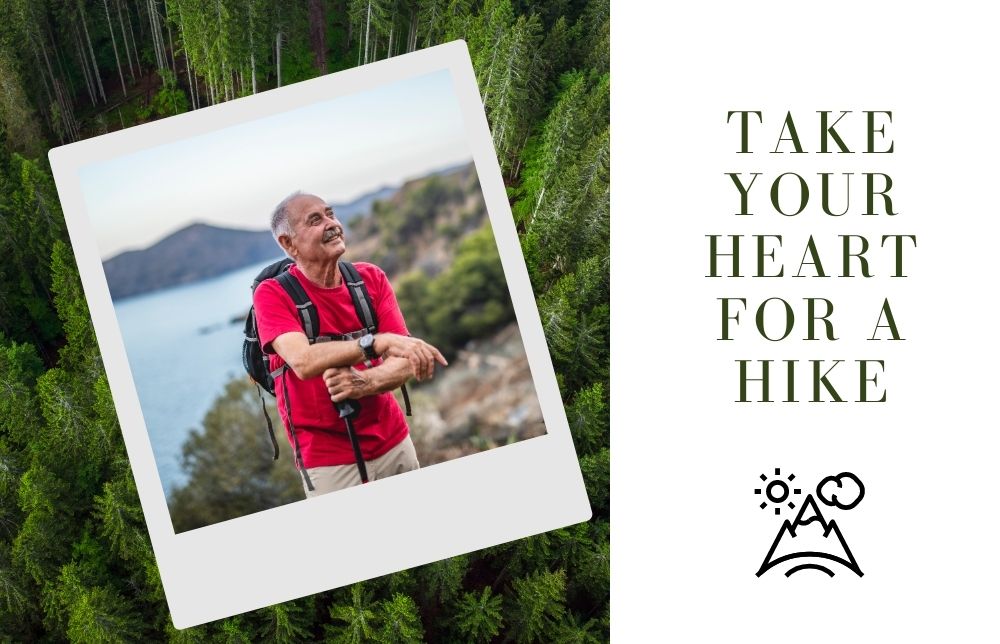
Take Your Heart for a Hike
February 1, 2021
Nearly everyone, regardless of age or athletic ability, can find a hike that offers the right level of personal challenge. Like brisk walking, hiking is a good way to improve your cardiovascular fitness, particularly if your route includes some hills, which will increase your heart rate. And hiking may even offer some unique physical and mental benefits.
Hiking Is A Natural Stress Reliever
One of hiking’s most restorative and stress-relieving powers is simply being outside in nature. Whether it’s in nature preserves, national forests, woodlands or even urban parks, spending time in green space can ease stress levels. Giving the growing consensus that stress contributes to high blood pressure and heart disease risk, anything you can do to mitigate stress is likely helpful. There’s a real sense of peace and composure you get from being outside and away from everything.
Hiking Gives More for the Core
Hiking offers a diversity of terrain that provides a natural way to engage the core muscles in your torso and to hone your balance skills. You can’t replicate that type of lateral motion from walking on a treadmill or riding a stationary bike. A stronger core means less stress on the heart.
Mapping Out Your Hike
Just as important as getting to know the trails you’re going to explore is knowing how to prepare and get the most out of it. Here are some tips to make your hikes more fun and enjoyable:
- Pole Position Using walking or trekking poles can give you an added level of security on uneven terrain. Use poles with a spiked metal tip when walking on dirt or grass. Plant the pole out in front of you as you walk to take a little pressure off your knee joints. If you have problems with stability or vision, using walking or trekking poles can give you an added level of security.
- Bring a map and hike with a partner.A companion is good for both company and safety. If you go alone, let someone know when you plan to return.
- Wear hiking boots.Choose well-fitting footwear with good ankle support. Before you wear them for longer journeys, break them in with shorter walks to avoid getting blisters. Be sure to include moleskin in your pack in case you do feel blisters beginning to develop.
- Stay hydrated.Don’t forget to take plenty of water along on your hike, especially in warm, sunny weather.
Keeping your heart healthy can be a fun, restorative, and social when you include hiking as part of your exercise routine. Along with good nutrition, healthy habits, limiting your alcohol, and managing your stress, a heart policy from INRTA and AMBA is important. It could help cover specialized heart treatments not covered by Medicare. Learn more by calling 866-615-4063 or requesting a FREE Benefits Review at www.amba-review.com.
RECENT POSTS
Season’s Cheatings! How to Beat Scammers and Crooks This Holiday Season
It’s the most wonderful time of the year…for scammers. The holiday season is scammers’ favorite time of
Read More

AMBA’s November Recipe: Healthy Vegetarian Stuffing
What’s Thanksgiving without stuffing? Let’s face it: stuffing is a mainstay of the Thanksgiving
Read More
Want a Safer Home? Don’t “Overlook” the Importance of Good Vision
Falls are one of the most significant health risks for older Americans. According to reports, more than one out of four
Read More

Book Lovers Enjoy More Than Just a Good Story: The Health Benefits of Reading for Older Adults
What if there was a miracle drug that could help reduce stress, enhance memory, improve sleep, provide community, and supply
Read More

